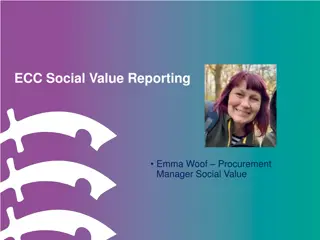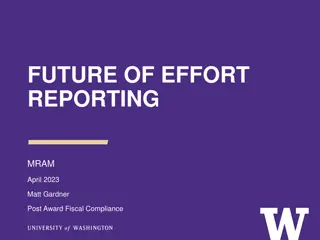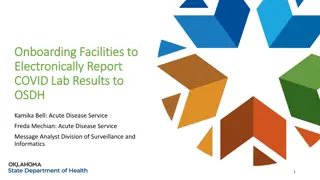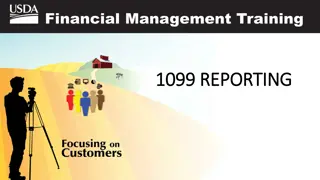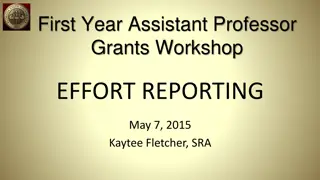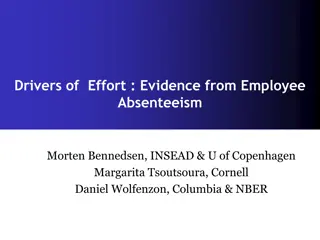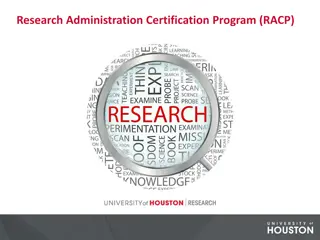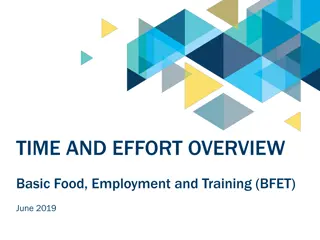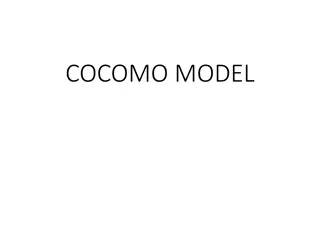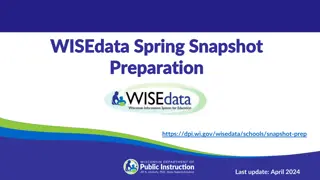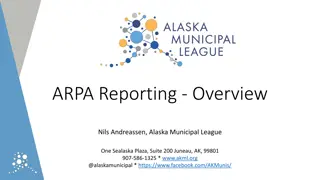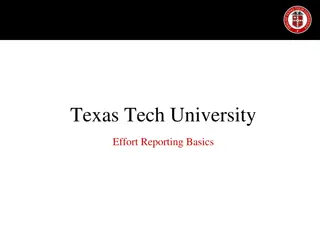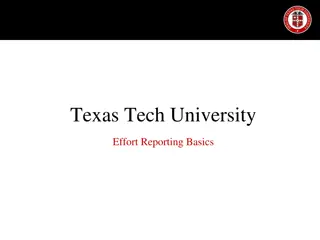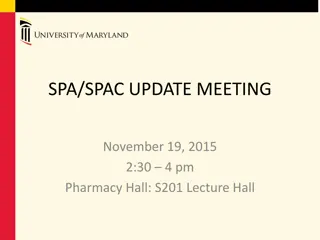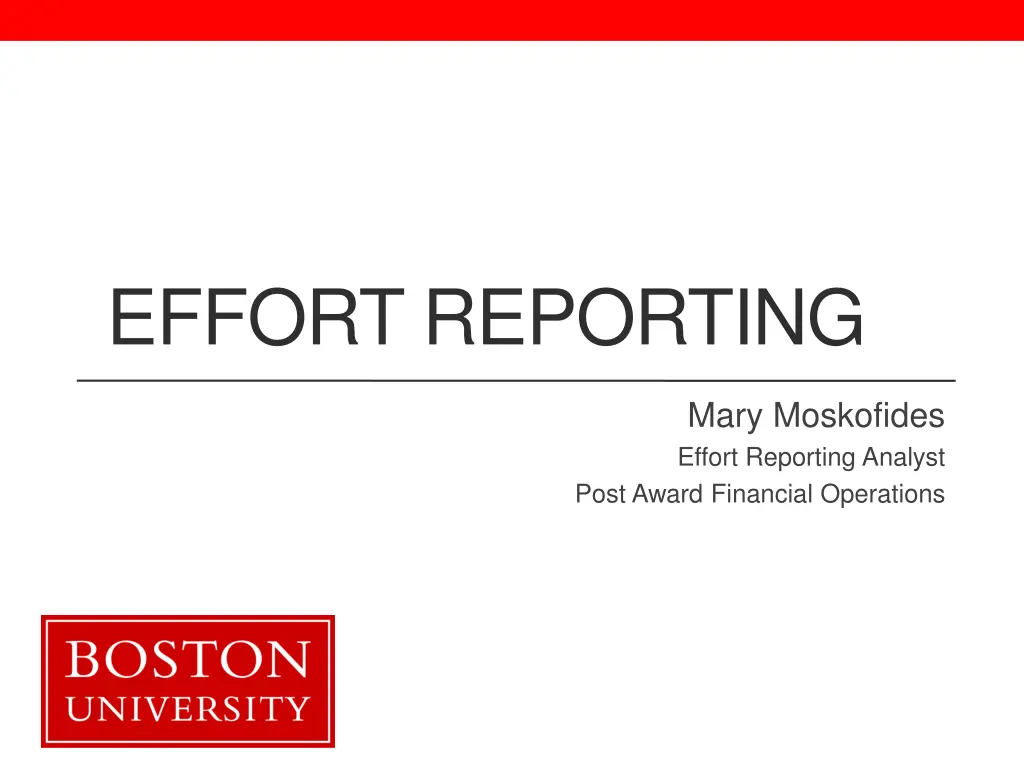
Effort Reporting Analyst Insights and Best Practices
Explore the core aspects of effort reporting, including what effort entails, certifying effort, maximum and minimum effort requirements, and the importance of effort reporting for sponsored programs. Gain valuable insights into why we certify effort and key considerations in the effort reporting process.
Download Presentation

Please find below an Image/Link to download the presentation.
The content on the website is provided AS IS for your information and personal use only. It may not be sold, licensed, or shared on other websites without obtaining consent from the author. If you encounter any issues during the download, it is possible that the publisher has removed the file from their server.
You are allowed to download the files provided on this website for personal or commercial use, subject to the condition that they are used lawfully. All files are the property of their respective owners.
The content on the website is provided AS IS for your information and personal use only. It may not be sold, licensed, or shared on other websites without obtaining consent from the author.
E N D
Presentation Transcript
EFFORT REPORTING Mary Moskofides Effort Reporting Analyst Post Award Financial Operations
Agenda What is Effort? Certifying Effort Maximum/Minimum Salary vs. Effort Issues to consider Why do we certify? o Cost Share/ DHHS Cap o Salary Percentages o Salary Adjustments o Manual PAR What is Effort Reporting? How often do we report? Effort Report Overview PAR Completion Process Control Logs & PARs
What is Effort? Effort is the time spent on any University activity by an individual, expressed as a percentage of the individual s Total University Effort o A reasonable estimate o Total effort must equal 100% o Not based on a standard 40 hour work week o Does not include outside activities External consulting Veterans Administration (VA) compensated activities
Maximum and Minimum Effort Maximum Effort o Most faculty are unable to devote 100% of their time to sponsored activities due to other responsibilities that include: Teaching Administrative work Patient care Competitive proposal writing Minimum Effort o Principal Investigators (PIs) cannot certify 0% effort on sponsored project o PIs must certify at least 1% to reflect leadership on the project o Sponsor exemptions: equipment, training, conference support grants
Why Do We Certify Effort? Office of Management and Budget (OMB) Uniform Guidance oCompensation for Personal Services ( 200.430) Eliminated from Uniform Guidance Certification Specific examples for acceptable validation Many of same principles over what is acceptable do not appear to have explicitly changed Charges must still be based on percentage distribution of total institutional base salary activities
Why Do We Certify Effort? The federal audit community has not bought into the full elimination of effort reporting. We are monitoring closely. BU will continue to follow After-the-Fact reporting method Effort reports are almost always requested and reviewed by federal auditors when sponsored programs are under review oLabor costs typically represent 2/3 of the direct costs charged to federal awards
What is Effort Reporting? A method for documenting the proportion of total work time devoted to sponsored agreements, expressed as a percentage of total work time A means of verifying o Appropriate salary & wage expenses were charged to sponsored projects and that they were reasonable o Cost sharing was performed as promised o Total effort commitments were met o Labor costs supporting sponsored activity are appropriately classified in the facilities and administrative (F&A) cost rate Boston University uses Personnel Activity Reports (PARs) to certify effort o Primary auditable documents to support salary costs to an award
Effort Certification Periods New Reporting Periods Beginning in Fiscal Year 2016 Effort Certification is required semi-annually for the following employee groups: Faculty, Managerial and Professional Employees Non-Professional, Clerical and Technical Employees Student Employees
Effort Certification Periods All University employees who have salary charged to PAR eligible wage types will be on the same schedule of certifying effort reports twice per year: July to December (Reports issued in February) January to June (Reports issued in August) Effort reports received recently are for the following groups and the PAR periods listed below: Professional Employees (monthly); 7/1/2015 12/31/2015 Non-Professional Employees (weekly); 6/22/2015 12/27/2015 Student Employees; 6/22/2015 12/27/2015
Review Control Log In keeping with the sort order of PARs, the control log that accompanies the reports is sorted alphabetically by last name within each Mail Code. If you are missing a PAR or a PAR was sent to your department in error o Please email effort@bu.edu and either request or return PAR immediately to PAFO
Personnel Activity Report PARs contain pre-printed information indicating the percentages of the employee s University salary that were allocated to sponsored agreements and other non-sponsored University activities o Category I: BU NON-SPONSORED ACTIVITY Unrestricted Breakdown of percentages for informational purposes Please provide only one percentage in % of Effort Expended column o Category II: BU SPONSORED ACTIVITY Section A reflects Sponsored Agreements Section B reflects Cost Sharing Activity Please provide sponsored program number(s) and percentage of effort expended on each agreement o Category III: SERVICES PROVIDED TO BOSTON MEDICAL CENTER (as vendor) This category reflects the percentage(s) related to BMC sponsored activity
Certifying Effort not Salary Two columns are listed on the PAR o One with pre-printed salary percentages (provided for reference) o One to complete actual effort percentages Considerations: o Payroll percentages may be incorrect o Only PAR eligible wage types are considered for effort o Funding sources may not align with how effort was expended o Cost sharing o Salary Adjustments
Issues to consider when reconciling PARs Salary of less than .5% to a cost object will not display on PAR Key Wage Types and Impact on Effort Reporting
Cost Sharing Cost Sharing is the portion of project or program cost that is not reimbursed by the sponsor. Cost Sharing Type Definition Required on PAR? Yes Required by the sponsor as a condition of an award Mandatory Cost associated with a sponsored project, identified in the proposal, but was not required or funded by the sponsor Voluntary Committed (VCCS) Yes Cost that is neither committed in the proposal nor required as a condition of the award Voluntary Uncommitted (VUCS) No Salary cost sharing occurs when effort exceeds the payroll charged to a particular project Example is DHHS Salary Cap (Mandatory Cost Sharing) These costs may not be charged to the sponsored project and must be supported by University funds.
Mandatory Cost Sharing DHHS Salary Cap Federal Guidelines limit the annual amount of salary that can be charged to DHHS awards to $183,300 effective January 2015 Employees whose 100% full-time equivalent salary is greater than $183,300 must ensure that no more than $15,275 is charged to DHHS awards on a monthly basis Employees over the threshold must charge an unrestricted account for any amount greater than $183,300 IMPORTANT NOTE o Faculty doing any work outside of research, such as proposal writing, teaching, clinic or committee work MUST allow a minimum of 5% to be charged to a non-sponsored account after cost share is accounted for What does this mean??? In this case, only $174,135/annually or $14,511/monthly can be charged to DHHS awards with the remaining 5% charged to a non-sponsored account
PAR Review Review if % of Salary Charged is a reasonable reflection of how employee spent their time. Faculty may not charge 100% of their salary to research unless they are strictly research faculty. (Refer back to maximum/minimum effort) Within a PAR period, effort percentages: May fluctuate among sponsored programs, if within the same grant Must equal total salary charged among those sponsored programs May be greater than salary charged, but the difference must come from non-sponsored funding sources
PAR Review If errors are found, corrections should be made on the PAR Salary must support effort percentages Effort percentages cannot be less than salary charged Retroactive salary adjustment may be needed Complete PAR in its entirety oPercentages (whole numbers only - no decimals) oEffort certification statement oReturn to PAFO by deadline Auditors review for timely submission
Salary Adjustments If effort expended percentage is less than salary charged, a salary adjustment must be processed When processing a Personnel Action or an Additional Payment which encompasses a period for which PARs have been issued, the employee PAR must be attached If the PAR has been accepted, the PAR will need to be re- certified. This is a rare occurrence and only approved under special circumstances.
Manual PAR A manually produced PAR may be requested from the research accounting administrator if: Employee not previously paid from a sponsored agreement Cost share documentation is required
Who can certify? Certification Eligibility: PAR Certifiers must comply with the following statement: I certify that I am either the covered individual, PI or supervisor using suitable means of verification to confirm that the percentages shown in the Percent of Effort Expended column reasonably reflect the actual effort devoted to the sponsored agreement(s) during the period of the effort report. Faculty: All faculty must certify their own PARs Non-Faculty: Principal Investigators (PIs) must certify their own PARs All other non-faculty PARs for professional staff, non-professional staff and students may be certified by the employee, their PI or supervisor NOTE: The certification statement must include the employee or official signature, date, and printed name. If certifier is not the employee, the supervisor or principal investigator box must be checked on the form.
Who cannot certify? Department research administrators are not eligible to certify the effort of faculty or research staff, unless they have such written after-the-fact confirmation from the employee, supervisor or Principal Investigator.
PAR Process Information Federal Guidelines require certification to be completed on a timely basis Certification Timing: Time for completion and return to our office is sixty (60) days to allow adequate and reasonable time for certification. o You should not wait until the deadline to submit Any PAR certifications received after 60 days, run the risk of disallowance. If this occurs, your department will be charged back for the associated salary, fringe, and indirect charges incurred Federal regulation requires each PAR be accurately certified and received in PAFO office by the deadline listed on the PAR
Certified PARs A PAR is considered certified when the following criteria are met: % of Effort Expended column is completed using whole numbers Column adds up to 100% Certifier has signed, dated, and printed his/her name. If certifier is not the employee, the PI or supervisor box must be checked on the form. An incomplete or incorrectly signed PAR will be returned to the department for corrections, often resulting in significant delays in report submission and compliance.
Consequences of Non-Compliance The risks of non-compliance with effort reporting are significant The sponsor may: o Disallow related salary, fringe and F&A costs o Reduce or eliminate future funding o Press criminal charges
Effort Reporting Information The Sponsored Program Effort Certification Policy provides clear guidance to faculty and administrators on PAR process (link below): http://www.bu.edu/cfo/post-award-financial-operations/resources/university-policies/
Questions & Answers Thank you for your attention! Contact Effort Reporting with additional questions: effort@bu.edu Effort Reporting Moskofides, Mary Effort Reporting Analyst 617-353-0883 marymosk@bu.edu Fitopoulos, Theodore Effort Reporting Coordinator 617-358-5106 theofito@bu.edu

